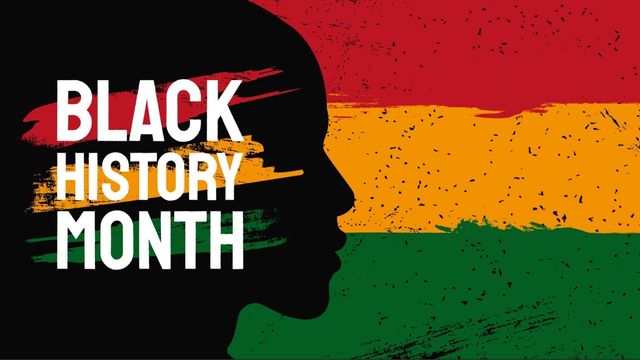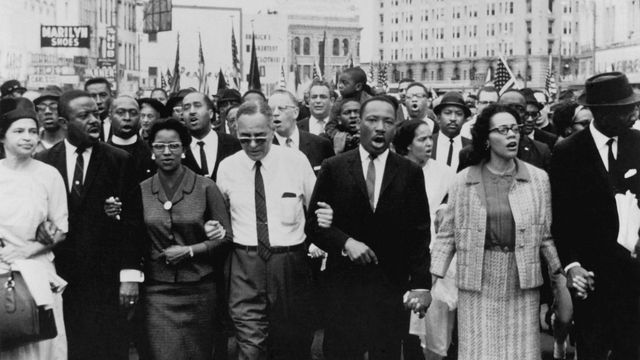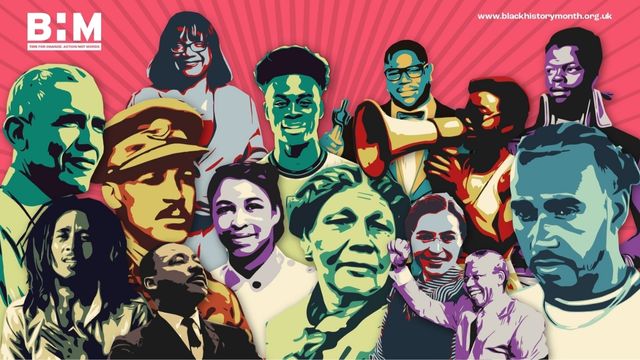As we approach the end of February each year, it is a time to reflect on the progress of the past decade in terms of celebrating Black History Month. In the 10 years since 2013, we have seen significant strides in recognizing and celebrating the contributions of African Americans to our country. From the celebration of the first African-American president to the nationwide recognition of the movement for Black Lives, to the recognition of the underrepresented voices in literature, music, and film, the last decade has been an incredible time of progress. As we look back on the achievements of the last decade, let’s take a moment to celebrate the progress made in the last ten years and look forward to a future filled with even more progress. Join us as we take a look back at the last decade of progress and celebrate Black History Month 2023!
History of Black History Month
Black History Month is an annual celebration of African American history, culture and accomplishments that has been observed in the United States since 1976. The event was first conceived by Dr. Carter G. Woodson, an African American historian, author and the founder of the Association for the Study of African American Life and History.
In 1926, Woodson established the first “Negro History Week” to recognize the accomplishments and contributions made by African Americans. This week was held during the second week of February to commemorate the birthdays of two of America’s most influential African American figures: abolitionist leader Frederick Douglass and President Abraham Lincoln.
In the 1970s, the event was expanded to a month-long celebration. The event was officially recognized by the United States government in 1976 with the passage of a resolution by President Gerald Ford. The resolution officially designated February as “Black History Month” and acknowledged the importance of recognizing African American contributions to the nation’s history.
Since its inception, Black History Month has been celebrated in a variety of ways. Schools, universities, churches, and other organizations have hosted events to honor the history and achievements of African Americans. Exhibitions, lectures, and performances highlighting African American history and culture often take place during the month. Books and movies about African American history are also popular.
The legacy of Black History Month is significant. It serves as a reminder of the importance of celebrating the contributions of African Americans to the nation’s history. In addition, it serves as a way to recognize the progress made over the centuries in overcoming racism and advancing civil rights. As we continue to strive for a more equitable and just society, Black History Month provides an important opportunity to pause and reflect on the unique and important contributions African Americans have made to the United States.
Celebrating Black History Month
As we celebrate Black History Month, it is important to recognize and honor the many African-American individuals who have made extraordinary achievements in our society. From prominent leaders such as Dr. Martin Luther King Jr. to civil rights activists such as Rosa Parks, the African-American community has contributed significantly to the development of our nation.
At the same time, we must recognize that there are still many issues that are facing the African-American community today. From systemic racism and economic inequality to a lack of representation in leadership positions, these issues must be addressed if African-Americans are to achieve full equality. We must use this month as an opportunity to promote Black culture and achievements, discuss and bring attention to the issues facing the Black community, and support Black-owned businesses.
One way to promote Black culture and achievements is to recognize and celebrate the accomplishments of African-American individuals in the arts, business, sports, and other fields. By celebrating the success of African-American individuals, we can show that they can and have achieved greatness in spite of the obstacles they face. Additionally, we should continue to seek out and promote African-American talent in all areas, including the entertainment industry and the corporate world.
Furthermore, it is important to use this time to discuss the issues facing the African-American community, such as racial disparities in health care, education, and employment. We must bring attention to these issues and work towards finding solutions to them. This can include supporting and investing in nonprofits, organizations, and businesses that are working to address these issues.
Finally, it is essential to support and invest in Black-owned businesses. Black-owned businesses are essential to the economic and social growth of our society, and investing in them can help create job opportunities and foster economic stability in Black communities.
As we celebrate Black History Month, let us honor and recognize the achievements of African-Americans and work to promote Black culture and support Black-owned businesses. Let us also use this month to bring attention to the issues facing the African-American community and work to find solutions that will benefit us all.
Spotlight on Leaders
For the past 10 years, there have been a number of influential figures in the Black community that have been role models for the current and future generations. Through their hard work, resilience, and dedication, these role models have left a lasting impact on the African American community.
One of the most inspiring figures of the past decade is the 44th President of the United States, Barack Obama. A Harvard Law graduate, Obama was the first African American to hold the highest office in the United States. He served two terms in the White House and left a legacy of hope and progress. During his time in office, Obama sponsored a number of important initiatives that impacted the African American community, including the Affordable Care Act, which provided millions of Americans with health insurance; the My Brother’s Keeper Initiative, which provided mentoring, support, and resources to young men of color; and the Deferred Action for Childhood Arrivals program, which provided protection for undocumented immigrants.
Another inspiring leader of the past decade is former first lady Michelle Obama. A Princeton and Harvard Law graduate, Michelle Obama was an advocate for education, health, and nutrition. As first lady, she launched the Let’s Move! Initiative, a national campaign to end childhood obesity, and promoted the Reach Higher Initiative, an effort to encourage more students from all backgrounds to pursue higher education.
The entertainment industry has also been home to a number of influential figures for the Black community. Singer, songwriter, and actress Beyoncé Knowles has been a leader in the industry for many years, and she has used her platform to support causes such as gender equality and the Black Lives Matter movement. Her song “Formation” served as an anthem for the Black Lives Matter movement and has been an inspiration for many individuals in the community.
Actor and philanthropist Idris Elba is another leader in the entertainment industry. He has used his platform to raise awareness about the importance of STEM education and other issues facing the African American community. In addition, Elba is a global ambassador for the International Rescue Committee and works to help refugees around the world.
Finally, actor and activist Jesse Williams has been an important figure in the Black community. He has used his platform to advocate for social justice and racial equality. In 2016, he delivered an inspiring speech at the BET Awards, which has become one of the most iconic moments in modern Black history.
These are just a few of the many inspiring leaders of the past decade that have served as role models for the current and future generations. From Barack Obama to Beyoncé Knowles to Idris Elba to Jesse Williams, each of these individuals has made a positive impact on the Black community and left a lasting legacy.
Events Celebrating Black History Month
The celebration of Black History Month is an important part of recognizing the struggles and achievements of African Americans throughout history. This month is a time to recognize the contributions of African Americans and to celebrate their cultural heritage.
Cultural events are a great way to honor Black History Month. From art exhibitions and panel discussions to film screenings and performances, these events can help to educate and engage the community in the history of African Americans. Many local organizations, such as museums and libraries, host events to honor the month. Additionally, organizations like the National Association for the Advancement of Colored People (NAACP) and the Black Lives Matter Movement often hold events to celebrate the month.
Educational events can be a great way to learn about African American culture and history. From lectures and workshops to classes and seminars, these events can provide attendees with valuable knowledge about the history of African Americans. Many colleges and universities offer courses and events related to African American history and culture. Additionally, organizations such as the National Museum of African American History and Culture often have special events during Black History Month.
Fundraising events are a great way to support African American organizations and institutions. These events can help raise money to provide resources to African American communities. From silent auctions to concerts, there are many ways to support organizations and causes related to African American history and culture. Additionally, individuals can donate directly to organizations, such as the United Negro College Fund, to help provide educational opportunities to African American students.
Black History Month is a time to celebrate and recognize the contributions of African Americans throughout history. Whether through cultural events, educational events, or fundraising events, there are plenty of ways to show support and appreciation for African American culture and history. By taking part in these events, we can help to ensure that African Americans continue to be represented and celebrated.
Honoring Black History Month’s Legacy
Black History Month is a time to honor the legacy of African Americans who have made an indelible impact on the United States. From famous figures of the past to modern-day trailblazers, Black people have made significant contributions to culture, politics, and society.
It is a time to remember the pioneers who paved the way for generations to come. From the earliest days of slavery to the Civil Rights Movement and beyond, Black Americans have led the fight for change and justice. We remember the heroes like Rosa Parks, Martin Luther King Jr., and Malcolm X who sacrificed their lives for a better future for our nation.
Black History Month is also a time to celebrate the incredible art, music, and literature that has been produced by Black Americans. From the Harlem Renaissance to modern-day hip-hop, Black culture has influenced popular music, literature, and art throughout the world. We remember the writers, poets, and musicians who broke barriers and challenged the status quo.
Additionally, we recognize the work of Black entrepreneurs, business owners, and innovators who have built successful companies and enriched our economy. We honor the activists, luminaries, and everyday people who are making a difference and inspiring others to push for change.
Black History Month is a time to remember our shared past and to celebrate the contributions of African Americans that have enriched our country. We are reminded of how far we have come and how much more we can still achieve.
Key Achievements Of Black History Month
Black History Month is an important time to remember and celebrate the achievements of Black people throughout history. Every February, the month is observed to recognize the accomplishments of African Americans, past and present. Black History Month is a time to reflect on the progress and challenges that still remain.
Education is a key achievement of Black History Month. Throughout history, African Americans have fought for basic rights to education and access to higher education. This has included the integration of public schools, the establishment of Historically Black Colleges and Universities, and more recently, the expansion of educational opportunities through the No Child Left Behind Act. Education has opened up new doors for African Americans and enabled them to pursue a wide range of opportunities.
Economic empowerment is another key achievement of Black History Month. African Americans have made great strides in terms of economic success. This includes the development of Black-owned businesses, the establishment of African American banking institutions, and the formation of financial cooperatives. Additionally, Black Americans have made gains in the labor force and increased their annual salaries.
Political representation is another significant achievement of Black History Month. African Americans have made significant strides in terms of electoral participation and representation in the government. This includes the election of African American mayors, members of Congress, and other elected officials. This has provided African Americans with a greater voice in the political arena.
Finally, social justice is an important achievement of Black History Month. African Americans have fought for civil rights, equal rights, and social justice throughout history. This includes the Civil Rights Movement, the passage of the Voting Rights Act, and the implementation of affirmative action policies. These efforts have enabled African Americans to gain greater access to social services, employment opportunities, and other resources.
Black History Month is a time to celebrate the progress of African Americans, past and present. Education, economic empowerment, political representation, and social justice are all key achievements of Black History Month and should be remembered and celebrated.
>> Read more: Unlock the Power of History with These 10 Black History Month Activities





